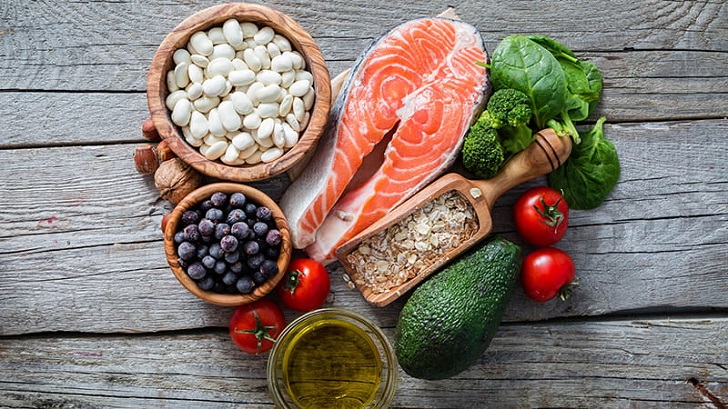
Eating Well As You Age

As we age, it becomes increasingly important to maintain a healthy and balanced diet to support our overall health and well-being. Eating well can help reduce the risk of chronic diseases, maintain physical and cognitive function, and promote longevity. This article will explore tips and strategies for eating well as you age.
Focus on Nutrient-Dense Foods
As we age, our bodies require fewer calories but the same amount of nutrients. Therefore, it’s important to focus on nutrient-dense foods that provide many vitamins and minerals per calorie. Nutrient-dense foods include fruits, vegetables, whole grains, lean protein, and healthy fats.

Heart/ Pinterest | A healthy outside starts with a healthy inside
Stay Hydrated
Dehydration is a common problem for older adults and can lead to various health issues, including urinary tract infections, kidney stones, and constipation. Aim to drink at least eight glasses of water daily, and consume foods with a high water content, such as fruits, vegetables, and soups.
Watch Your Sodium Intake
As we age, our bodies become less efficient at processing sodium, leading to high blood pressure and an increased risk of heart disease. Limit your sodium intake to no more than 2,300 mg daily, and opt for low-sodium options when available.
Get Enough Fiber
Fiber is important for maintaining healthy digestion and reducing the risk of constipation. Consume at least 25 grams of fiber daily, and choose fiber-rich foods such as fruits, vegetables, whole grains, and legumes.
Include Healthy Fats in Your Diet
Healthy fats such as omega-3 fatty acids are essential for maintaining brain function and reducing the risk of heart disease. Good sources of healthy fats include fatty fish, nuts, seeds, and avocado.

Heart/ Pinterest | Eating healthy, nutritious food is the simple and the right solution to get rid of excess body weight effortlessly
Be Mindful of Portion Sizes
As we age, our bodies require fewer calories, so it’s important to be mindful of portion sizes to avoid overeating. Try using smaller plates, measuring out portions, and avoiding second helpings.
Consider Taking Supplements
As we age, our bodies may require additional nutrients that are difficult to get from diet alone. Talk to your healthcare provider about whether taking supplements such as calcium, vitamin D, and B12 may benefit you.
Practice Good Food Safety
Our immune systems may weaken as we age, making us more susceptible to foodborne illness. Ensure you wash your hands before handling food, cook foods to their proper temperature, and store food properly to avoid contamination.

WHO/ Getty Images | Every time you eat is a chance to nourish your body
Stay Socially Engaged
Eating well isn’t just about the food we eat but also the social context in which we eat it. Eating with others can provide a sense of community and social engagement, which is important for overall health and well-being.
Consider Your Individual Needs and Preferences.
As we age, our nutritional needs and food preferences may change. Consider any dietary restrictions or health conditions, and work with a healthcare provider or registered dietitian to develop a personalized nutrition plan that works for you.
More in Nutrition & Weight Loss
-
`
Why Did Chris Pratt Call Anna Faris Before Proposing to Katherine?
Chris Pratt, the beloved star of “Guardians of the Galaxy,” made headlines when he revealed that he called his ex-wife, Anna...
December 3, 2024 -
`
6 Proven Tips to Tackle Insurance Claim Denials Successfully
Claim denials are a common hurdle for healthcare providers and professionals, even for those who follow the necessary procedures to avoid...
December 1, 2024 -
`
5 ‘Bad’ Fitness TikTok Trends You Shouldn’t Follow
TikTok has become a haven for creative fitness advice. But not all trends are worth your time or your health. From...
November 23, 2024 -
`
Does Drinking Water Affect Adrenal Hormones?
Drinking water is often seen as a simple way to stay hydrated, but it has deeper effects on our body than...
November 14, 2024 -
`
Why We Feel the Loss of Celebrities So Deeply?
Celebrity grief might sound strange at first. After all, most of us have never met these famous figures in person, yet...
November 5, 2024 -
`
Are High Deductible Insurance Plans as Ideal as They Appear to Be?
High deductible insurance plans have been a hot topic for years, especially as healthcare costs continue to rise. For many Americans,...
October 31, 2024 -
`
How Training Load Data Can Transform Your Exercise Routine
Tracking progress during workouts is challenging. Simple metrics like mileage or time don’t show the whole picture. Understanding the overall effort...
October 26, 2024 -
`
Katy Perry’s Weight Loss Journey: Secret Diet Tips Revealed
Katy Perry’s weight loss journey has been making headlines, with the pop star shedding 20 pounds over the past few months....
October 16, 2024 -
`
Celebrity Trainer Jeanette Jenkins Shares 5 Key Workout Motivations
Jeanette Jenkins is one of the most sought-after celebrity trainers, known for her ability to motivate and inspire people to achieve...
October 8, 2024















You must be logged in to post a comment Login